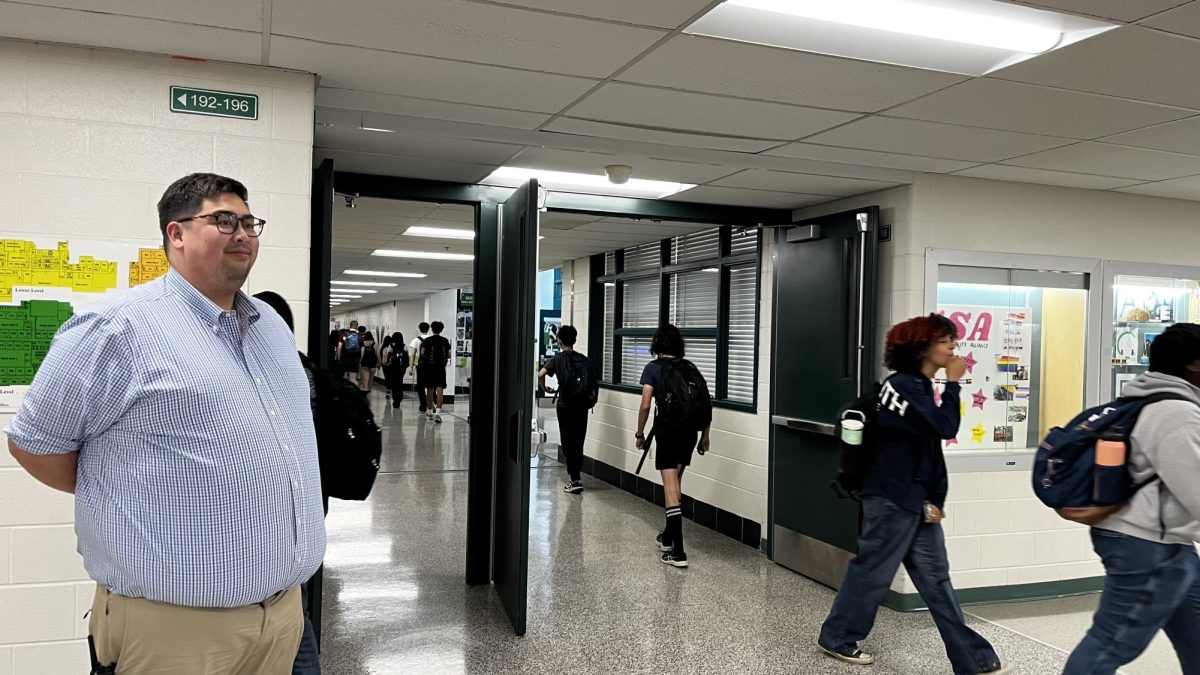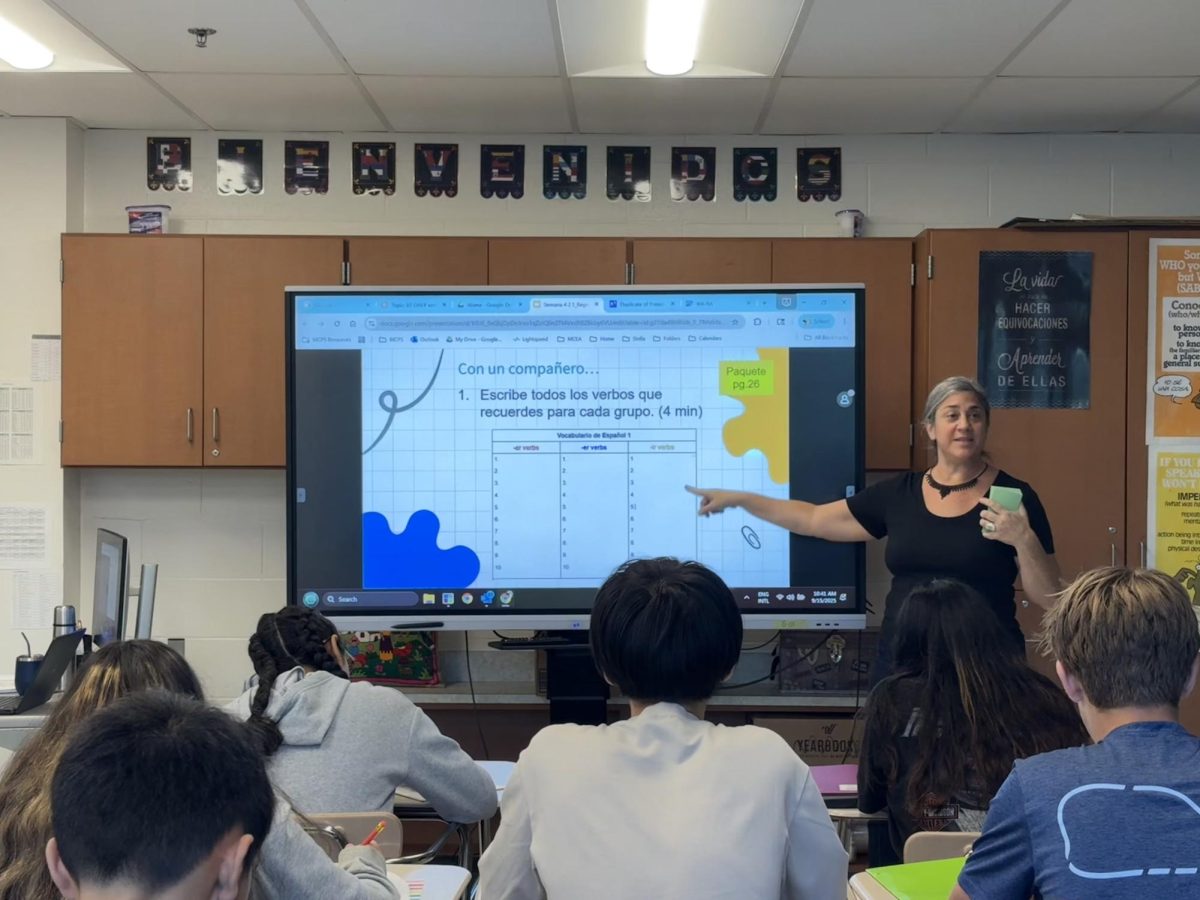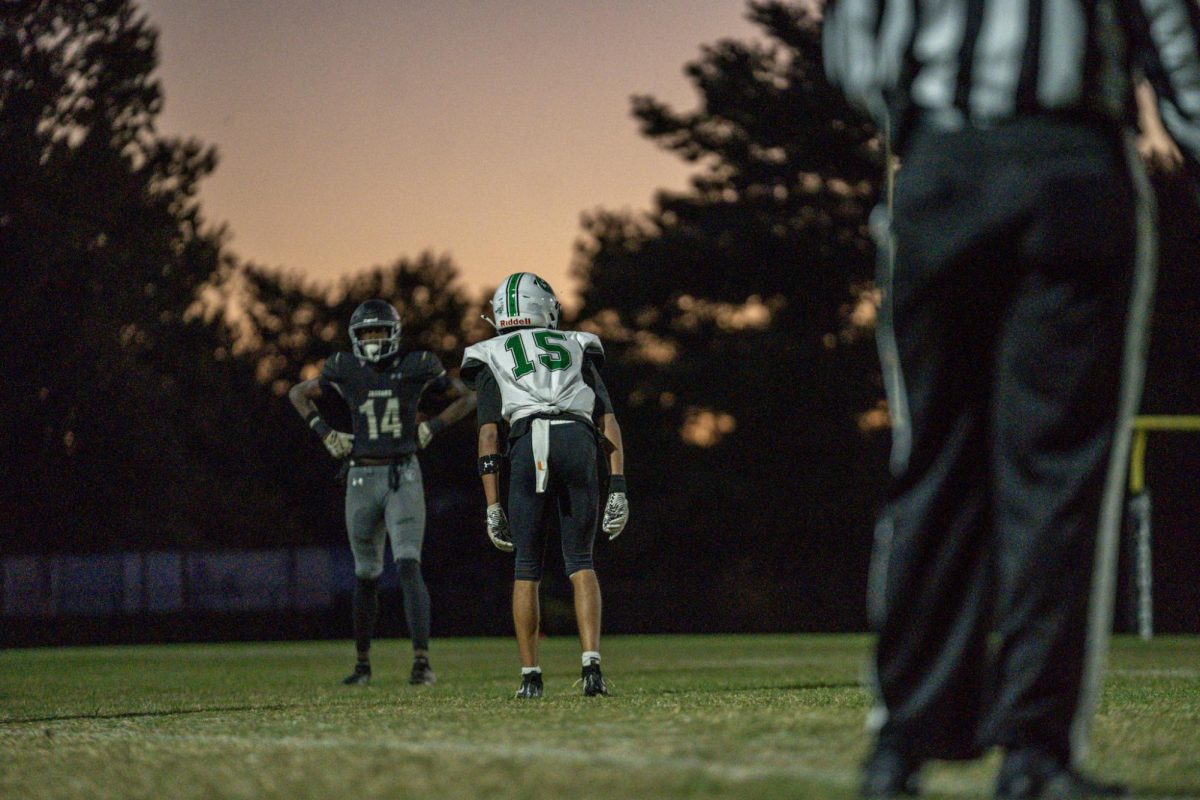The simple sensation of listening to music has been stripped away, as students and teachers battle over the prohibition of phones and headphones during class time. The debate around music’s effect on students’ attention spans persists.
In a time of technology, many students find solace in listening to music during school hours, whether it be in the hallways while completing their class work or in the classroom. However, in recent years, many students have abused this privilege by using their headphones at inappropriate times in class, causing the county-wide prohibition of phones and headphones with the support of many MCPS teachers.
A majority of the students voice that this discipline is unfair and takes away a rightful privilege to listen to music during independent work. Some point blame at those who abused the privilege, while other students plead their case with their various teachers stating that background noise is more distracting than the actual listening of the music.
“It isn’t distracting me, it’s more filling a space and keeping me from getting entangled in other people’s conversations, which I find more distracting than the music itself,” senior Natalie Zaid said.
Students also note the unfairness of teachers and the county assuming what may or may not be distracting.
“I feel like they’re making an assumption on what’s best for every person when in reality everyone is different and knows what’s best for their own learning ability,” Zaid said.
Meanwhile, some teachers feel the restriction will be beneficial, and argue that listening to music preoccupies your mind when your mind needs to be focused on work. They note the rudeness of visible headphones and the audio level of music in order to hear what’s going on around them.
“You need to concentrate when you’re studying math, if you’re in an art class I can see how listening to music might stimulate some part of your brain, but when you’re listening to music your brain is concentrating on what you’re hearing,” math teacher Mary Lafratta said.
As teachers are given the opportunity to choose if students can use their headphones or not, some teachers provide a differing viewpoint as they approve of music during their classes. But of course, there are always exceptions, no teacher is going to tolerate music while they are in the process of teaching.
“If it hinders my efforts of getting the classroom attention, then it becomes a problem, but otherwise, if a student is listening to music while developing film, working in the dark room, or taking pictures, I think it can be motivating,” photo teacher Daniel Kempner said.
This back-and-forth debate has caused conflict within the classrooms, but it has approached a point where students may not have any interjection into the topic. But there’s no doubt that students will continue to grumble about any injustices they feel affect them.
“While phones can be a distraction, music in itself should be an exception especially when people know that it will help them get their work done,” Zaid said.















